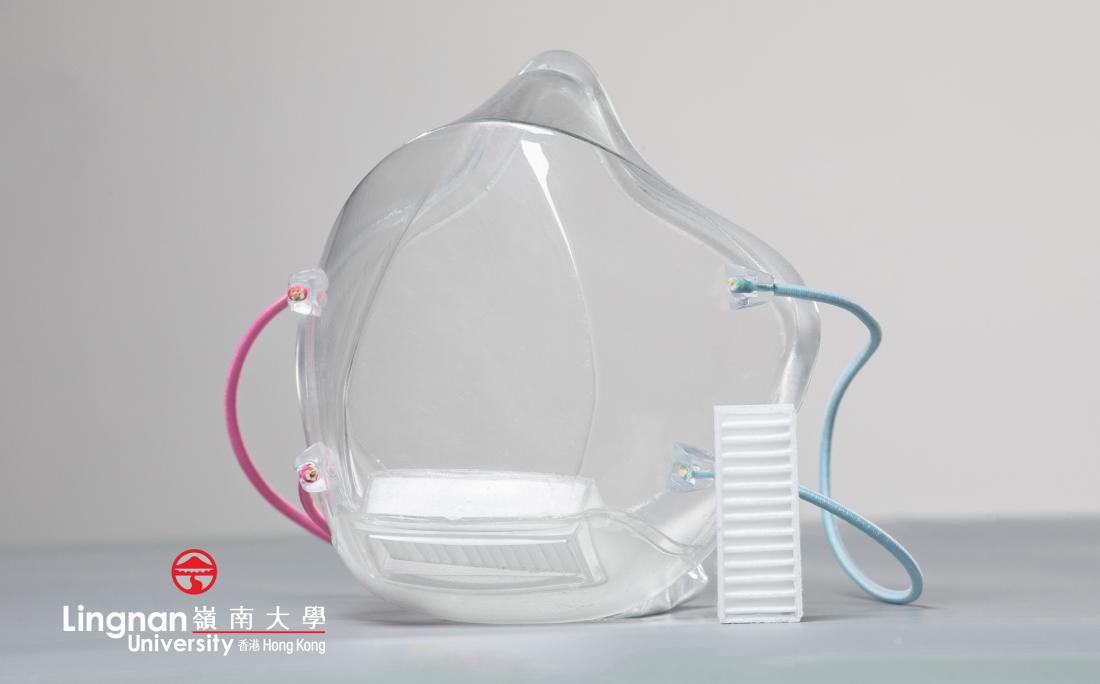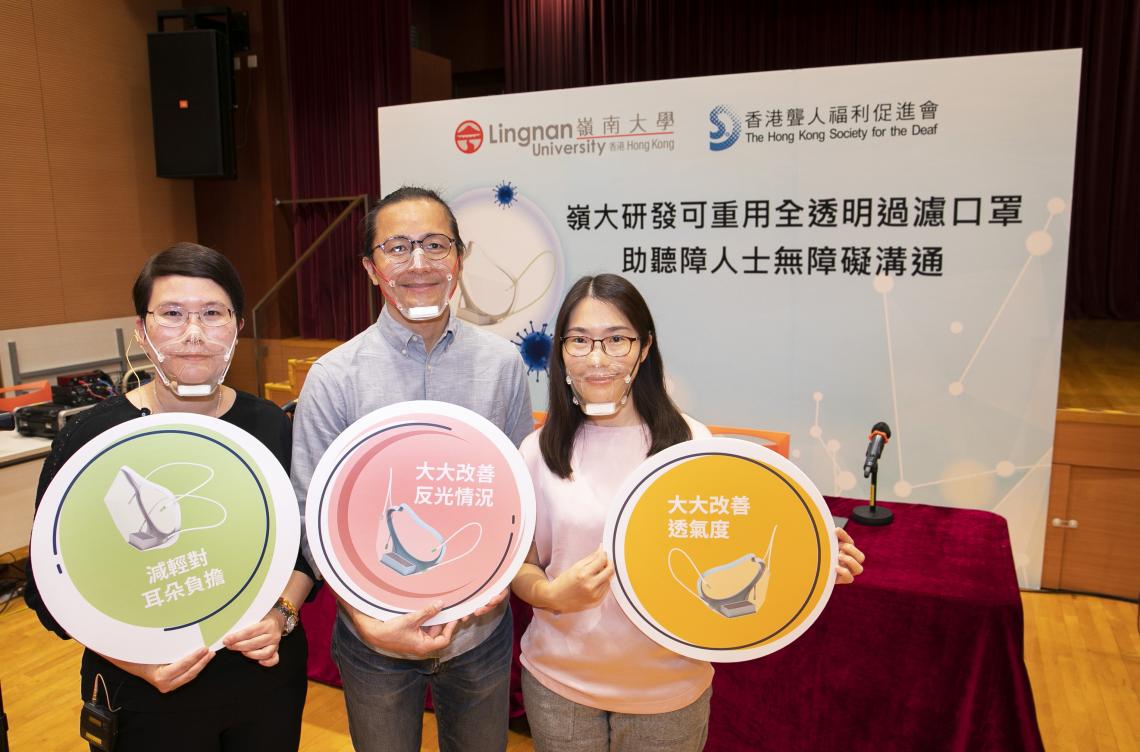Everyone has to wear a mask to curb the spread of COVID-19. However, this is an additional communication barrier for people with a hearing impairment as they cannot read lips or facial expressions behind a mask. Invited by The Hong Kong Society for the Deaf, the Lingnan Entrepreneurship Initiative of Lingnan University in Hong Kong (LU) recently designed a transparent ASTM Level 3 face mask based on the needs of hearing-impaired people, and its fully transparent and anti-reflective design makes lip-reading easier.
Project leader Dr Albert Ko Wing-yin, Director of the Lingnan Entrepreneurship Initiative said that most transparent face masks available fail to meet protection standards, and that semi-transparent face masks with anti-pathogen properties reflect and fog up. Also, the transparent surface area is not large enough to reduce communication challenges of the hearing-impaired. “The fully transparent face mask designed by Lingnan University adopts an innovative humanitarian approach. Inspired by stealth fighter jets, the transparent face mask is combined with the use of polygon design, flat surfaces and sharp edges to make light refract, so as to reduce unwanted glare significantly. With its fully transparent design, users’ lips and facial expressions are visible. In addition, the edge of the mask is made of soft materials that prevent it from moving around while the wearer is speaking, and it fits close to the face,” said Dr Ko.
Dr Ko explained that Lingnan University’s transparent face mask is easier to breath in than a general use surgical mask, because an additional H13 high-efficiency particulate air (HEPA) filter, which blocks up to 99.95 per cent of viruses and meets ASTM Level 3 standards according to reports from the US National Aeronautics and Space Administration (NASA), is in the bottom. Its anti-viral coating protects against viruses for up to eight months, and the inner layer is designed with long-lasting anti-fog technology. The mask is reusable by sanitising it with 70 per cent isopropyl alcohol wipes daily, but the H13 HEPA filter needs to be replaced every two weeks. The mask, which has both ear-hook and headbands, can significantly reduce the burden on people who wear hearing aids for prolonged periods. It also addresses the specific needs of microtia patients and those who need to wear a headscarf.
“Hearing impaired persons wearing face masks prevent lip-reading and hamper their ability to communicate and receive information during the coronavirus pandemic. Since using transparent face masks is not common in Hong Kong, most products in the market cannot effectively filter viruses, and, in turn, directly weakening hearing impaired individuals and other needy people’s willingness to use them. Through collaboration with Lingnan University, The Hong Kong Society for the Deaf hopes to provide hearing impaired persons with fully transparent face masks that consider both visibility and viral filtration. Taking this opportunity, we urge the government departments, public organisations, and large establishments to take a more proactive approach in providing anti-COVID-19 transparent face masks to the frontline staff, so as to help lip-reading deaf people, promote barrier-free communication and protect their rights to access information, said Ms Chen Mei-ling, service coordinator and registered social worker of The Hong Kong Society for the Deaf.
The Lingnan Entrepreneurship Initiative research team organised a series of workshops in June and July 2020 to gather opinions on face mask design from hearing-impaired individuals. After listening carefully to everyone’s views, they designed a fully transparent, anti-reflective and comfortable anti-COVID-19 ASTM Level 3 face mask.
The team is now seeking financial support for the mass production of the transparent anti-COVID-19 face mask so it can be made widely available to the public and help people with hearing loss to read lips, show their smiles and communicate effectively. The next target is to extend the transparent face mask to other professionals such as teachers, sign language interpreters, speech therapists and related service workers, providing them with a more environmentally friendly and inclusive option.
Dr Albert Ko Wing-yin, Director of the Lingnan Entrepreneurship Initiative (middle), Ms Chen Mei-ling, service coordinator and registered social worker of The Hong Kong Society for the Deaf (left), and Sarah Lee, hearing-impaired person (right).




